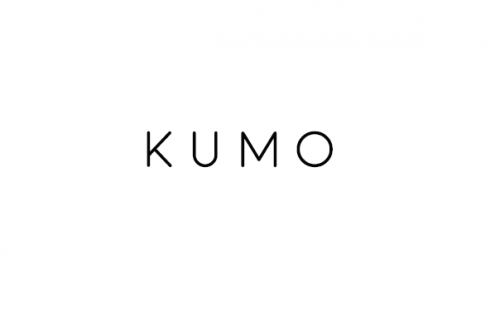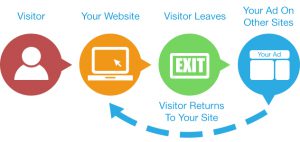
April 11, 2017, by The Ingenuity Lab
Pitch@Palace 7.0: TOP 10 Pay Per Click (PPC) Tips
Ads are playing a bigger role in search engine results than ever before. Taking up real estate and permanently fixed to the very beginning of returned queries, they more or less guarantee eyes at all times. Running the perfect campaign is tricky, especially if you’re not from a technical background or have little knowledge of a pay per click platform.
1. IDENTIFY WHERE THE SEARCH IS
Adverts appear within the search engine results. This means that any traffic directed to your site would have actively performed a search query before ending up on your landing page. With that in mind, you have to determine the right product/service related keywords (e.g human tech, entrepreneur,) and terms to target in your ads.
Using Google AdWords Keyword Planner, you can gauge how much search volume there is for your terms, as well as average cost per click (CPC) and competition. You’ll also be presented with keyword suggestions related to your inputted terms. Use this data to assess how likely it is that you can run a successful campaign revolving around these keywords.
You’ll likely find that higher search volumes have more competition and a higher CPC. Generic terms usually fit this bill so you may be better off looking at more specific keywords or using different match types (see point 4).
2. CREATE SPECIFIC LANDING PAGES
If a user is actively searching for a keyword they want to be directed to a relevant page to find exactly what they want. With that in mind, landing pages can make or break a campaign. One click that takes users to their desired place is much more likely to convert, than a generic page that doesn’t really solve a problem or answer a question.
Create a specific landing page for each ad group you have instead of having a generic page for all ads. Don’t forget, the pay per click model means you’ll have paid for somebody to instantly leave your site if your copy isn’t up to scratch.
3. SPLIT TEST ADS

PPC is a world full of data. Collating your own can have a huge impact on the overall success of your campaign, too. A/B testing is a friend of almost all areas of the internet and that certainly rings true here. Bear in mind that Quality Score (QS) is dictated by Click Through Rate (CTR) to a fairly large extent so there’s more than one reason to determine the optimal ad.
Google AdWords actually has built-in split testing functionality. You’ll have the ability to test different headlines, descriptions and display URL’s. Your ads will then start to gather data for each instance.
4. CONSTRUCT ENTICING ADS
Your ad displaying is essentially your chance to convince people to stop scrolling down the results page. Even if you have the best product at the cheapest price with free delivery, a bonus gift and 90% off their next purchase, if people don’t click it, they can’t purchase.
Granted there are limited characters in which to design the ideal ad so be clear, concise and appealing without trying to squeeze too much in. Let your ad answer search queries and solve problems. Use the split testing feature to gauge what works best for CTR and conversions.
5. REFINE BROAD MATCH KEYWORDS
Executing the right match type can save your budget, improve CTR and increase conversions. There are four AdWords match types; broad, modified broad, phrase and exact match. All of them have their own good and bad points and as such can be great or awful for your campaign and budget.
- Broad match is set as default by many PPC platforms. It essentially opens the keyword up to show an ad whenever someone searches for that phrase, similar phrases, singular or plural forms, misspellings, synonyms, stemmings (such as floor and flooring), related searches and other relevant variations. This can be great for generating plenty of clicks but ads can be less targeted to specific searches and audiences. That usually means a lot of irrelevant and non-converting traffic that you’ve paid for. There is a negative keyword option available, where you can cut out some of the unrelated stuff you might be appearing for.
- Modified broad match is similar to broad match but allows you to tell the search engine that a search query must contain predetermined words to qualify for auction. By adding a “+” to the beginning of each word, you’re saying that you only want to bid when the search query contains those words. For example ‘+Nike +trainers’ means the words +nike and +trainers must be used in the search query.
- Phrase match takes it a step further and offers even more control. To incorporate phrase match, add quotation marks around your term e.g. “buy Nike trainers”.
- Phrase match is used when you want to show for certain phrases, so the keywords need to be in the correct order. It doesn’t however, exclude searches with additional terms before or after the keyword, such as “buy Nike trainers second hand”. Whilst this is mainly advantageous, there’s still room for unwanted clicks and visitors.
- Exact match is the most restrictive of match types. You are saying “I don’t want any traffic from anybody not searching for this exact term”. By adding square brackets to your terms, you can make this statement. [Nike trainers] will not show your ad for any other search query. It results in more focused traffic searching for your specific terms but cuts down on overall amount of traffic as you’ll have less impressions from a lower search volume.
6. GET REMARKETING IN PLACE

Remarketing refers to the practice of targeting people who have previously visited your site. Having crafted a campaign with time, effort and money, you’ll want to ensure the best ROI possible.
Remarketing is used to display ads for your site or products across the Display Network, to previous visitors. It’s almost like a second chance to persuade potential customers to buy your goods and is often extremely effective.
7. MAKE USE OF AD EXTENSIONS
Google AdWords has an impressive number of ad extensions that can enhance ads and in turn boost CTR. Their function is to provide users with additional information. This includes sitelinks which point to different pages of your site, call extensions for inclusion of phone numbers and location extensions offering a map. Structured snippets have proven to work well and can showcase a range of services, brands and areas you work with. These can help improve relevancy, take up additional real estate and improve account performance.
8. USE YOUR BUDGET ON SPECIFIC DEVICES
It’s no secret that mobile search query is on the rise. One of Google’s latest features for AdWords is the ability to adjust budgets based on device – desktop, tablet or mobile.
Perhaps ads offering services aimed at businesses or corporations perform better on desktop. Maybe Nike trainers show a higher conversion rate on mobile. You can use the AdWords platform to assess which of your keywords perform better across different devices and make adjustments based on this data.
9. REGULAR SCOPING AND AUDITING
What works at this moment in time, may not necessarily be as effective in the future. The ads game is an everchanging one and versatility and adaptability is a must if you want to succeed with AdWords in the long-term.
Search terms change and landing pages and ad copy can grow stale and outdated. The search terms report in AdWords can offer insights into what people are searching for, whilst reviewing traffic, visitors and checking your CTR, impressions and conversion rates is recommended at least once a month.
10. SPREAD YOUR BUDGET WISELY
One of the most underused features of AdWords is the ability to adjust bidding and visibility by day and time. If you have data indicating that CTR and conversions are higher at given times, you can use this to your advantage and finetune your budget accordingly.
If you’ve noticed, for example, that you sell more through ads on a Wednesday evening and virtually nothing on a Friday morning, ramp up your budget for Wednesday night and bring it right down for Friday am. Minor tweaks like this can improve sales without additional expenditure.
KUMO are a digital agency specialising in online marketing. KUMO are partners with Google, Brightpearl, and PayPal and are Bing Ads Accredited Digital Agency. Providing bespoke Web Design, Development and Online Marketing services.
Please do ensure you subscribe to this blog to keep updated about our events and activities! You can also follow us on Facebook, Twitter, LinkedIn and Instagram.
No comments yet, fill out a comment to be the first

Leave a Reply